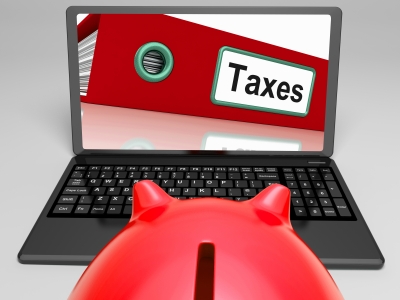 The Philippine Department of Finance (DOF) plans to institute reforms at its two attached revenue-generating agencies to compensate for the expected lower revenues from the planned reduction in personal and corporate income taxes.
The Philippine Department of Finance (DOF) plans to institute reforms at its two attached revenue-generating agencies to compensate for the expected lower revenues from the planned reduction in personal and corporate income taxes.
Finance Secretary Carlos Dominguez III said that to make up for the anticipated revenue loss of about P174 billion from lower income tax rates, revenues will have to be raised from other sources “in order to invest in our infrastructure and our people, and make sure that everybody feels the economic growth.”
He said bringing down individual income tax rates will boost the spending power of wage earners, while reducing corporate tax rates will encourage investment inflows to the country’s economy.
But while the new government wants personal and corporate income tax rates reduced, Dominguez said it also needs to generate more revenues to effectively implement its 10-point socioeconomic agenda.
Dominguez said complementing revenue-generating measures is the implementation of reforms at the Bureau of Customs (BOC) and Bureau of Internal Revenue (BIR) to ensure transparency, reduce corruption, and expand the tax base.
Such reforms include the full computerization of transactions at the BOC “as well as (the pegging of the) valuation of goods to prevailing real time prices in the international market” to slowly phase out the need for customs brokers and the proliferation of fixers in the agency.
The computerization of BOC is mandated under the Customs Modernization and Tariff Act (CMTA), the new law that envisions a cashless, faceless, and paperless environment for the agency.
The CMTA mandates optional use of customs brokers’ services two years after the law is implemented. BOC recently held a seminar for importers and exporters on basic customs processes and allowing cargo owners to clear their own shipments.
With the BIR, Dominguez said he has instructed the bureau to treat taxpayers better when they come to pay their taxes and to simplify the system to broaden the tax base.
Another measure to compensate for revenue loss is acceleration of infrastructure spending “to ease congestion here in Manila, decrease the cost of moving people and goods through the archipelago, boost tourism and pump prime economic activity.”
“There will no longer be underspending which reined in economic performance in the past,” he said.
The government is also reviewing tax perks for businesses and exemptions to the value added tax (VAT), indexing oil excise tax rates to inflation, as well as indexing and reforming property valuations, he said.
“We are reviewing the tax incentives that were so casually given out in the past. Many of the businesses are enjoying incentives they do not really need. We are designing a system that will be more transparent, performance-based, highly targeted, and time-bound. It’s about time to rethink our policy of attracting investments into the country,” Dominguez said.
VAT exemptions will likewise be up for review.
“We hope our people will understand that it is preferable to withdraw certain exemptions than to raise the VAT rate,” he added, emphasizing that the exemptions enjoyed by the poor will not be removed.
Dominguez said the government is considering taxes on unhealthy food items to help raise additional funds and promote public health.
The Cabinet official said “now is the best time to cut personal and corporate income taxes while still raising enough revenues to fund President Duterte’s vision of inclusive growth, against the backdrop of a surging economy, strong investor confidence, declining debt, a stable peso, record gross international reserves, a balance-of-payments surplus, and unprecedented public support for a sitting Chief Executive.”
Image courtesy of Stuart Miles at FreeDigitalPhotos.net





